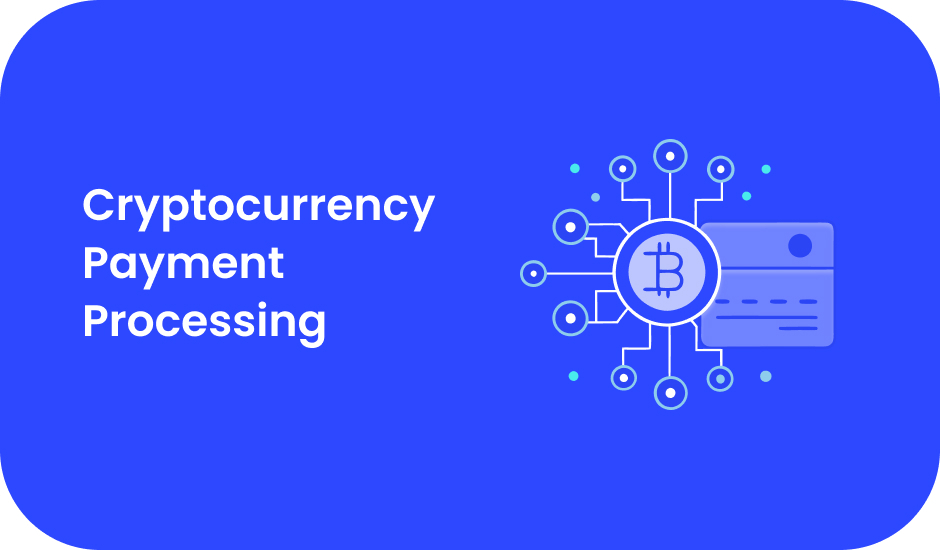According to Deloitte, over 75% of retailers plan to accept cryptocurrency or stablecoin payments within the next two years, indicating a rapid transformation in global payment preferences. Traditional financial systems aren’t equipped to manage this shift — they weren’t built for real-time, decentralized, cross-border transactions. For crypto businesses, integrating modern crypto payment processing systems isn’t optional anymore — it’s foundational.
The real challenge? Navigating fragmented regulatory requirements, securing payment flows, and integrating a payment gateway for crypto exchange that doesn’t collapse under volume or scrutiny. Businesses that solve this early unlock an enormous competitive advantage.
Let’s break down how leading crypto processing companies structure their systems, what makes a crypto payment gateway secure and scalable, and what matters most when selecting a crypto payment processing provider.
What Makes Cryptocurrency Payment Processing Different?
Unlike fiat systems, crypto payments operate in a decentralized structure. That changes everything - transaction speeds, settlement times, compliance obligations, and chargeback protocols.
Key Differences from Traditional Payment Processing:
- Settlement Speed: Most cryptocurrencies settle within minutes, not days.
- Finality: Blockchain transactions are immutable. No reversals. No chargebacks.
- Cross-Border Access: Payments don’t rely on SWIFT or IBANs. Anyone with a wallet address can receive funds.
- Volatility: Crypto value fluctuates. Stablecoin adoption helps, but volatility remains a risk to be managed.
This means the infrastructure behind payment processing crypto solutions needs to accommodate very different rules of operation. Systems must be capable of handling real-time risk scoring, instant currency conversion, and multi-jurisdictional compliance.
How Crypto Payment Processing Companies Build Scalable Infrastructure
Behind every seamless crypto transaction is a multi-layered stack - architecture designed to ensure speed, compliance, and trust.
Core Components of a Crypto Payment Gateway:
The best crypto payment processing companies don’t just focus on technical execution — they build regulatory-grade tools for a post-fiat economy. Most use modular APIs that connect directly to exchanges, OTC desks, custody providers, and tax software.
Who Uses Crypto Payments - And Why?
Crypto payments have moved far beyond exchanges. E-commerce platforms, gambling operators, fintech apps, and even nonprofits are now integrating them - each with different priorities.
Common Segments and Their Payment Goals:
Each of these industries requires flexible and secure crypto processing. They operate across jurisdictions, manage different currencies, and face unique regulatory challenges. No off-the-shelf solution can solve that. The infrastructure must be tailored.
How to Choose the Right Crypto Payment Processing Partner
Demand for reliable crypto payment processing companies is rising. But not every provider offers the legal clarity or technical stability that growing companies need.
What to Look For:
- Licensing and Jurisdiction: Top providers operate under VASP or EMI licenses in places like Estonia, Lithuania, or Canada.
- Multi-Currency Support: Not just BTC and ETH - look for USDT, USDC, and niche local tokens.
- Compliance Automation: Integration with tools like Chainalysis or custom AML modules matters.
- Settlement Times: Fast settlements reduce merchant risk and build user trust.
- API Documentation: Poor integration slows down launches - robust, well-documented APIs are critical.
For serious businesses, a payment gateway for crypto exchange must be more than transactional. It should help build long-term credibility with users, partners, and regulators.
Final Thoughts: Crypto Payments Are Already Mainstream
Crypto payments aren’t just for crypto-native users anymore. Businesses across sectors are integrating cryptocurrency payment processing into their stacks - not because it’s trendy, but because it solves real-world payment challenges: slow settlements, high fees, limited access, and chargebacks.
Choosing the right crypto payment processing partner makes a real difference. Whether you're running an exchange, an online platform, or a licensed VASP, you need infrastructure that goes beyond transactions - it should scale with your business, satisfy regulators, and earn user trust.
Looking to launch or upgrade your crypto payment infrastructure?
Explore how BMP Global helps companies integrate licensed, compliant, and scalable crypto payment systems.
Book a Free Consultation https://bmpglobal.io/book-meeting
Book a Free Consultation https://bmpglobal.io/book-meeting














